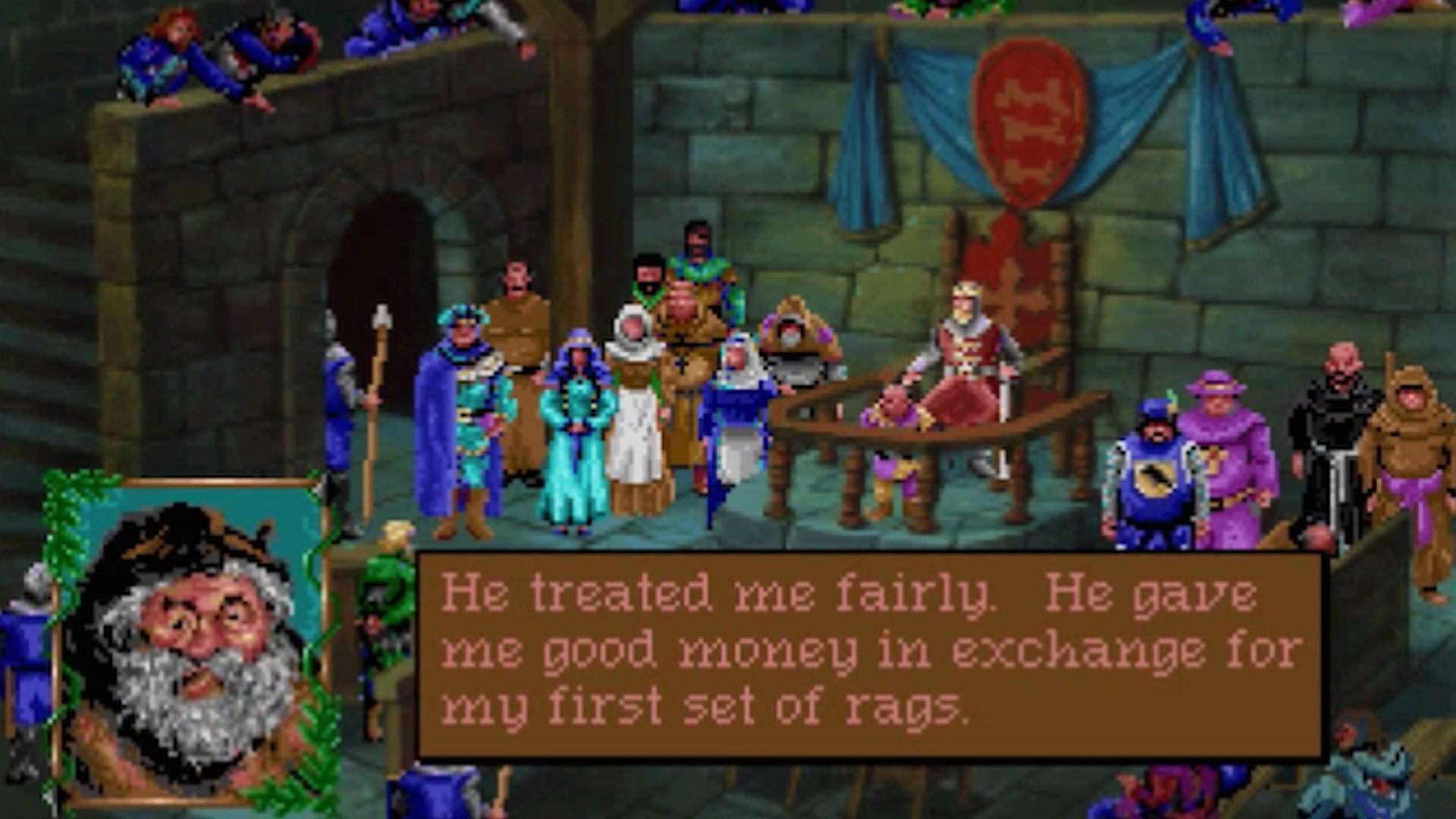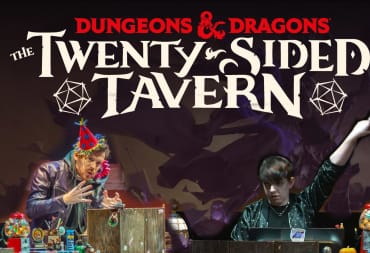As far as design trends are concerned, I've been very surprised to see player accountability and choices come to the forefront in story-based games, such as Mass Effect and the numerous Telltale point and clicks.
Now, I'm not because it's a bad idea; branching paths based on actions taken by players is certainly a wonderful idea and one that can show off just what this medium is capable of when it comes to telling a good story.
No, I'm surprised because every single one of these games hasn't been able to come even close to powerful choices having powerful consequences to one that came out over twenty years ago: the 1992 Sierra point-and-click adventure Conquests of the Longbow.
In case the title and header image didn't make it obvious, Conquests of the Longbow is a game about Robin Hood, the medieval thief who made his mark on the world by robbing the rich and giving to the poor.
This already means you're skirting a thin line between being the benevolent hero of the downtrodden and nothing more than a self-important thug, and it's up to you to make sure you're the former, rather than the latter throughout the roughly six-hour-long adventure. And, unlike Telltale's titles, the game won't warn you when you've screwed up; you'll have to face your sins all at once when Conquests of the Longbow comes to a close.
See, in the game's final act, Robin Hood is finally caught by the Sheriff of Nottingham and immediately sentenced to death. Yet moments before the stepladder is kicked out from underneath Robin's feet and his life is cut short, King Richard returns home from the Crusades to interrupt the hanging and give the leader of the Merry Men a fair trial.
And this is when things start getting interesting.

See, we know that the Robin Hood of lore is a good man at heart. He punishes the corrupt by giving their unfairly and illegally gained wealth to those who they have wronged; he's like the personification of karma.
But just because that Robin Hood is a good man, doesn't mean that Conquest of the Longbow's merry man is anywhere near as good. Throughout the game, there are many, many opportunities for you to do the selfish thing. Steal a monk's robes, leave a woman for dead at the hands of a corrupt soldier, or fail to save Maid Marion in her time of need? Then the King will see it fit that you hang.
But if you stick to your principles like an honorable thief, you shall be pardoned or, if you've been playing particularly well, be granted Marion's hand in marriage.
Not only is this a genius idea for a Robin Hood game on a thematic level, it's also fantastic from any moral choice standpoint. In a way, it can be seen as a precursor to a similar trial scene in the 1995 RPG classic Chrono Trigger, or another figurative trial by a third party at the end of the first season of Telltale's The Walking Dead, but I'd argue Conquest of the Longbow's finale has them all beat.

No matter the outcomes of the trials of Chrono Trigger and The Walking Dead, the ending is still the same. The trials don't truly matter; there are no real consequences for either. But in Conquest of the Longbow, you get what's coming to you, be it good or ill. And that's just the sort of consequences games need more of these days.
This post was originally published in 2016 as part of our Bullet Points series. It's been republished to have better formatting and images.
Have a tip, or want to point out something we missed? Leave a Comment or e-mail us at tips@techraptor.net













